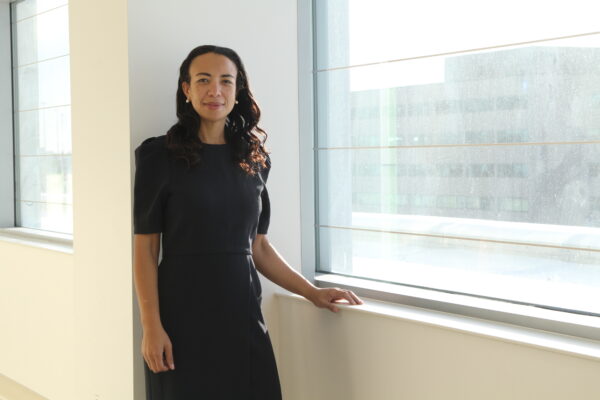Black History Month with Sandra Sualim
26
Feb
2024
Sandra Sualim is the President and Chief Executive Officer (CEO) of Humber River Health Foundation. This Black History Month, Sandra shared her unique journey, as well as the importance of recognizing and fostering diversity within our organizational culture.

Tell us about your journey.
My journey has been about discovering where my skills align with my passion. While my first role as a Trader Assistant was successful, I found it lacking fulfillment. Returning to school and transitioning to Public Relations opened a new world, especially when working with non-profit clients. The transferable skills I gained led me to fundraising, where I found deep fulfillment in contributing to impactful change.
Moving beyond the slogans when speaking about the rewarding aspects of fundraising, I witness the tangible impact every day. It’s not just about monetary donations; it’s about how these contributions directly influence patient care. This of course also includes, volunteerism, in its various forms, which adds another layer of significance. The diverse ways people give, whether through time or resources, collectively shape a positive impact on our community and that’s a journey I’m proud to be part of.
From your unique journey, especially as a Black woman, what has been your biggest challenge? Your biggest inspiration?
Being underestimated can be discouraging, but my inspiration comes from my team, organizational leaders, and women I look up to and admire. They have been my support system, showcasing the strength that comes from diverse perspectives. Overcoming challenges, including being underestimated, has been a catalyst for my professional growth.
Have you had any mentors? Do you mentor?
Yes to both! Even now, I am constantly growing and believe that having mentors often provide me with a different perspective. Oftentimes, you can become very involved with what you are doing in your own office, in your own sector, that you forget to see the bigger picture. My mentors have helped me look at things in different, more proactive ways, which I have really valued. When seeking out a mentor, it is helpful to find someone that you click well with and can learn from. It is also beneficial to understand that some mentors you may have for a long time and some only for a short period, both can be equally as significant.
Mentoring others, both here and outside of Humber, have been very important to me as well. I always aim to remind others that you can have everything as a woman, as a female leader, as a Black person, but it does require sacrifice. My favourite author, David Sedaris, said it best in one of his stories. Life is like four burners- your career, your health, your family, and your friendships – and you can usually only have two going really well, while the other two take the back burners. It is very easy to look at someone and believe they have it all together, but it is important to remember the sacrifices they have had to make in different areas of their life to get there. Having mentors and mentoring have helped me work to find a good balance needed in life.
As a leader, how do you think diversity in leadership impacts organizational culture?
Sincerity in diversity means it’s not just a checkbox or optics. Diverse leaders need to be genuinely accepted and their perspectives actively valued. This authenticity ensures that diverse leaders can fully contribute and make a high-quality impact on the organization. It’s about more than representation; it’s about creating an inclusive space for diverse voices.
How can colleagues and leaders best support each other in the organization, as well as our diverse patient population?
Active listening and empathy are the cornerstones of a supportive workplace. When we genuinely listen to each other, understanding flourishes and with empathy, we create a safe space for authenticity. Recognizing that everyone has lives beyond their careers fosters an environment where diverse perspectives thrive, contributing to positive relationships and impactful collaborations.
How can we carry this momentum beyond Black History Month?
Black History Month is a reminder of the ongoing impact of Black individuals and communities. Ideally, we’d integrate this acknowledgment into our daily practices, celebrating accomplishments and providing Black individuals and communities with opportunities and access to resources, mentorship, and more throughout the year. This shift requires a commitment to embedding equity into our culture and actively recognizing the role each of us plays in shaping an inclusive future.
I think at Humber, we are making tremendous strides in examining and addressing some of our own challenges and working together on solutions that we can implement and practice moving forward.
Anything to add?
I want people to remember that success isn’t limited to specific roles or grand achievements. It’s about recognizing and valuing the small, incremental changes that contribute significantly to our goals. Active listening plays a crucial role in acknowledging these steps, ensuring that every individual’s contribution is heard and appreciated. It’s in the journey where real learning and transformative change happen.
